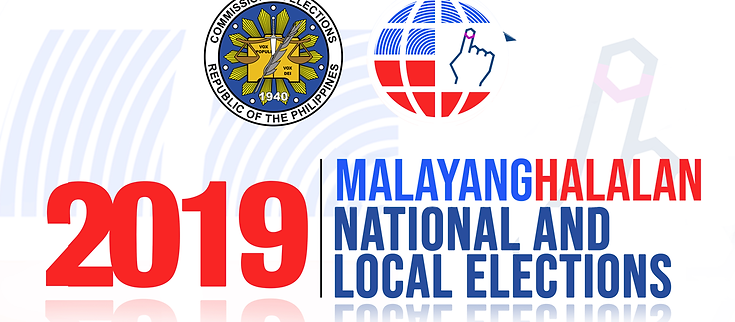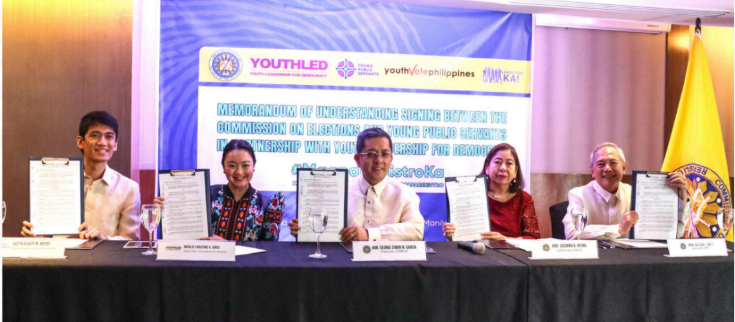ABOUT US

MISSION
To drive youth voter engagement by developing innovative, accessible, and impactful education programs and resources that foster informed, proactive, and responsible participation in the electoral process.
VISION
A nation where Filipino youth are empowered and actively engaged in democratic governance and nation-building through informed and responsible electoral participation.
Get to Know Us
YouthVotePhilippines is a network of progressive, reform-minded youth groups and organizations working toward voters’ education and empowerment. It is a call-to action for Filipino youth to become engaged and involved in nation building. It aims to develop online and
on-the-ground programs and events that will give young Filipinos the power of the vote and a clear voice for their collective aspirations.
4-Point Agenda
Voters’ registration
On-the-ground voters’ education
and engagemenT
Online portal for comprehensive
candidate information
Development of a youth agenda
for policymaking and action

HISTORY
2008

In 2008, Young Public Servants* engaged academic institutions, youth groups, political groups, student leaders, young professionals to come together to commit to agreeing on a common agenda for Youth/Citizen involvement in Electoral Reform and Political Engagement. In so doing, Youth Vote Philippines (YVP) was born. YVP became a consolidated force of progressive, reform-minded youth groups and organizations working towards voter’s education and empowerment. It calls on the Filipino youth to become engaged and involved in nation-building and promote citizen participation and empowerment by understanding the power of vote and advocating for the highest forms of integrity and Governance in Government.
YVP was formally launched on 20 September 2008. The YVP core group composed of Ayala Young Leaders Alliance (AYLA), Akbayan Youth, National Union of Students of the Philippines (NUSP), Ten Accomplished Youth Organizations (TAYO) Awards Foundation, First Time Voters (FTV) Netork, Youth Alliance Philippines and Young Public Servants (YPS) came together to align their activities and strengthen the advocacy for increased political participation among the youth.
2010
From 2008 to May 2010, YVP engaged the Filipino youth in sharing knowledge on social issues in preparation for the 2010 Presidential elections. It worked with the COMELEC and NYC to help get the public ready for automated elections. YVP implemented a variety of online education portals to support its voter’s education program. On-the-ground action was as vital as online action. By establishing different chapters in the provinces, YVP was able to produce informed and issue-based voters. These target areas were strategic areas such as Baguio in Luzon, Cebu in Visayas, and Davao in Mindanao. Eventually, the number of chapters increased, from the target 15, to 19 YVP Chapters (with the addition of Barras, Biliran, Palawan, and Pangasinan).
By placing an emphasis on a nationwide Youth Agenda, Youth Vote Philippines brought the perspectives of the youth at the forefront for policy-making and action. The view on voter’s education meant studying the registration process and the evaluation of candidates based on deliverables. By involving the provinces, the scope of the objectives of YVP were realized by involving a larger community of citizens where different political structures are at play. All events included an introduction on the Sustainable Development Goals, including an SDG Ballot to reinforce the need for issue based decision making and increase the number of youth advocates for the SDGs.
2013
In 2013 it promoted youth engagement and responsible voting during the midterm elections and introduced mock polls and information portals on candidates both on the regional and national levels.
2015
In October 2015, together with the National Youth Commission and the Commission on Elections, the advocacy campaign of YouthVote Philippines, “Boto Ko, Boses Ko! Bumoto nang tama, Pilipinas”, was launched in Intramuros, Manila. This also started the series of activities with local youth groups, civil society, academic institutions and local government units leading up to the 2016 Presidential Elections.
The Voter’s Election Toolkit and CHANGE Scorecard developed by YVP was also launched in 2015. The Toolkit is an easy-to-understand voter’s education manual focusing on the basics of the electoral process. It features the functions of the COMELEC, the Automated Elections, and the qualifications and duties of each elective official, among others. The toolkit also comes with a CD containing digital copies of voter’s education materials used by YVP in implementing its Social Conversations and Regional Public Fora. The Scorecard provided the five minimum characteristics to look for in a candidate – Competent, Honest, Accountable, Non-Biased, Good Governance Advocate and Empowering. Through a three-point scale, voters were given a quantifiable method of choosing who shall lead them in the next three or six years.
2019

In the 2019 Mid-term Elections, the YouthVotePhilippines launched their new website and together with their partners, have also launched new materials for the national and local elections.
In the 2022 Presidential Elections, the YouthVotePhilippines together with YouthLed and the Kabilang Ka sa 2022 Elections have launched YVP Voter's Education, Registration, and Election Monitoring Program.
2022

2025



In 2025, YouthVotePhilippines spearheaded by Mrs. Ching Jorge signed a Memorandum of Agreement with COMELEC for 2025 Midterm Elections.
